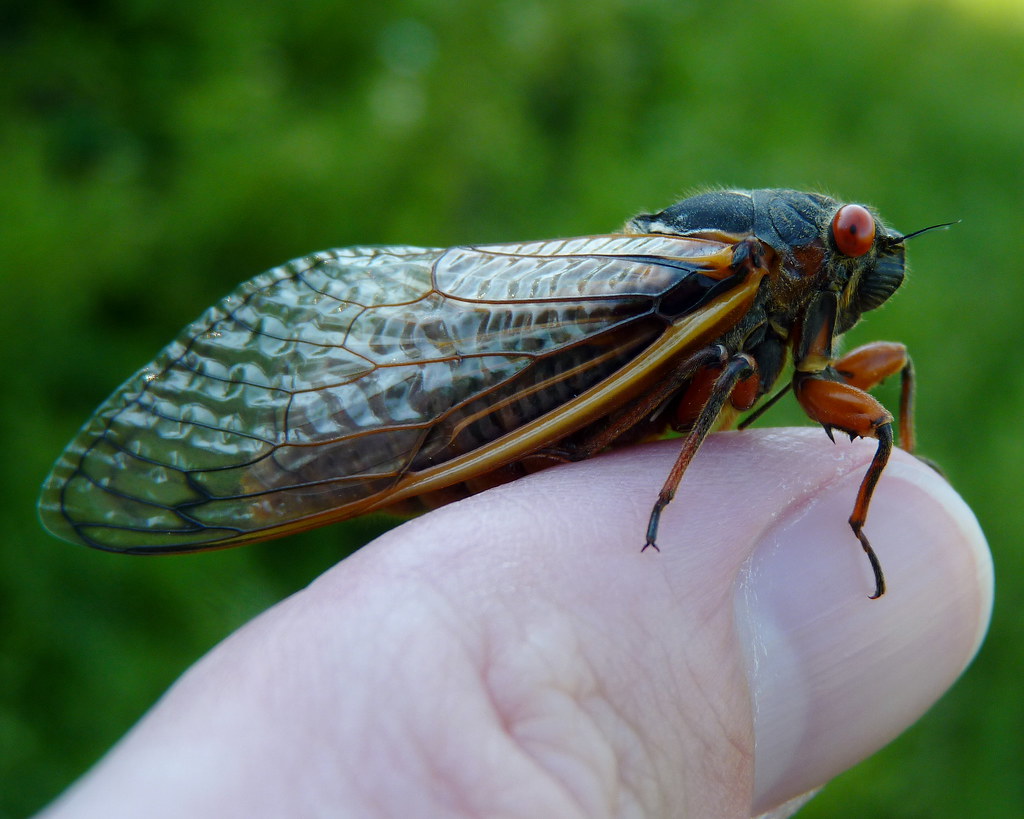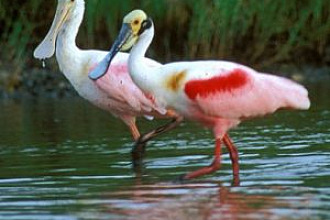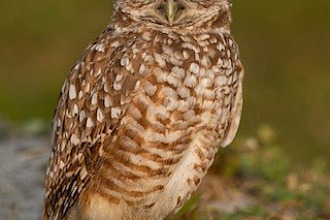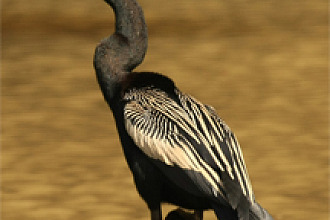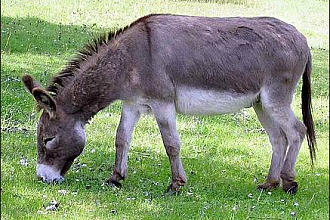Some creatures take years before they make a sound; in fact that's what some not-by-accident cicadas are just waiting to do! Read on:
Cicadas wake up to life when they hatch out of the egg that the mother has carefully deposited (with her ovipositor no less) in a not-by-accident slit she carved into a tree's small twig or branch a month earlier. So what does a little "nymph" do that has just hatched out of its egg up in a tree? You guessed it—just what you would do if you were a brand-newly-hatched baby up in a tree. They fall to the ground! But not to worry--their Creator planned for them to fall into the soil around the base of that tree, and not by accident gave them enlarged front legs perfectly suitable for climbing into cracks around the tree's roots or burrowing into the soil. At first the nymph may find grass roots to eat underground—but soon they locate the good stuff—the roots' nourishing sap that feeds the tree all the way up to the leaves. The little nymph has a not-by-accident shape to its mouth like a soda-straw. There, under the ground, the cicada starts drinking from the tree's sap, sharing the life-sustaining, life-changing nutrient. Some "annual" cicada species (there are nearly 3,000 worldwide) drink that root-juice sap for a year before they come out above ground. But there are other cicada species called "periodical cicadas" who feed on the root juice (something like watered-down maple syrup) for over 16 years before reaching maturity!
If you see an adult cicada you can know that the timing of their climbing out from the ground is not by accident—it happened at night, when the soil was at a constant mini¬mum temperature of 64 degrees F. (A Divine Programmer/Creator makes no mistake.) When the cicada crawled out, ready to live as an adult, it left its skin hanging on the tree it climbed up. It then emerged with a stout little body, broad head, large compound eyes, short antennae and clear membrane wings held roof-like up over its abdomen. The annual "Dog-Day" mid-summer cicadas have green markings. A periodical cicada usually has a black body, striking red eyes, and orange wing veins with a black "W" near the tips of the forewings.
Now about that 17th year for the periodical cicadas that have spent 16 years underground: There are three species of periodical cicadas (called magicicadas) whose timed arrival marks the start of an insect "sound festival" in some Northern locations in the United States. It's a God-programmed not-by-accident concert, since thousands were under the ground, yet locked together in time so that all of them mature into adults in the same year! Special vibrating structures called tymballs are found on the adult males of these cicadas. (The tymballs are actually covered cavities located just behind their wings, on their abdomens.) Each of the three periodical species makes its own noise, varying from sounding like someone starting a lawnmower to a sound as though the mower is chugging right along! One species "sings" in the morning, another starts their sound at noon, the third of these species breaks into their loud noise calling to a female in the middle of the afternoon. If you live in an area where they arrive by the thousands (or tens of thousands) you know what it means to say they have the day covered—and you may even cover your ears!
The cicadas' year of arrival is actually a blessing to much of the rest of nature. So many arrive they adequately meet the nutritional needs of nesting songbirds and other wildlife, and there are still enough left over of their own species for them to survive well! So the adults "sing," find mates and deposit eggs, and a month later new nymphs are landing on the ground, burrowing down into the earth, sucking up nectar from the roots of trees. The cycle of life, not by accident, begins again. It's a God-thing and He's always on time!
"NOT BY ACCIDENT" (c) Juanita Kretschmar is used by permission and was first published in the book "Not By Accident 3 page 13
Picture originally found here

